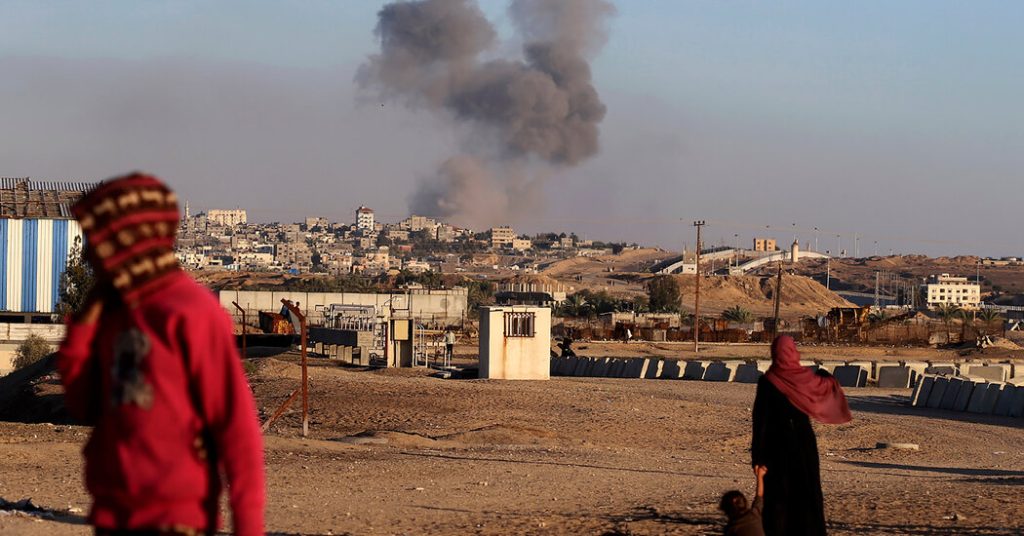Mr. Kirby addressed concerns that the United States was distancing itself from Israel, citing examples of continued support such as President Biden’s recent visit to Israel, financial aid, and military assistance. He emphasized that the U.S. believes Israel has been effective in pressuring Hamas and that there are alternative methods to targeting Hamas in Rafah rather than a full-scale ground operation. The U.S. is cooperating with Israel on strategies to defeat Hamas, including preventing weapon smuggling through the border with Egypt and targeting Hamas leaders. While some weapons shipments are paused, Israel is still receiving the majority of what it needs for defense, with ongoing funding from Congress.
President Biden’s decision to temporarily halt certain weapon shipments to Israel revealed tensions between him and Prime Minister Benjamin Netanyahu. Despite global criticism, Netanyahu has stated that Israel will proceed with its invasion in Rafah if necessary, with recent targeted strikes and evacuation of residents indicating potential for a major ground offensive. He reassured Israelis that they are prepared to stand alone and fight with determination to win. This statement reflects Israel’s resolve to defend itself and underscores the importance of self-reliance in the face of international pressure.
The United States remains committed to supporting Israel’s security and defense efforts, despite the temporary pause in weapon shipments. Mr. Kirby emphasized ongoing collaboration with Israel to combat Hamas and reinforce border security to prevent smuggling. He highlighted the recent funding package approved by Congress, demonstrating the continued financial support for Israel’s defense needs. This reaffirmation of support aims to reassure Israel of America’s commitment to their security and partnership in addressing security challenges in the region.
As tensions escalate in Rafah, Israel’s determination to confront Hamas and protect its citizens remains steadfast. Netanyahu’s declaration of readiness to face the conflict alone reflects Israel’s unwavering resolve and determination to defend itself against threats. The evacuation of residents and targeted strikes indicate the potential for a significant military operation, highlighting the complexities and challenges in the region. Israel’s commitment to defend itself underscores the importance of self-sufficiency and resilience in the face of adversity.
The U.S. government’s efforts to address the situation in Rafah and support Israel’s security reflect a broader commitment to stability and security in the region. The decision to pause certain weapon shipments to Israel is part of a diplomatic effort to address concerns and ensure the responsible use of military aid. By working closely with Israel to address security challenges and support efforts to combat Hamas, the U.S. aims to uphold its strategic partnership and promote stability in the Middle East. The ongoing collaboration between the two allies reinforces shared interests and values in addressing common security threats and challenges.
Overall, the developments in Rafah underscore the complexities and challenges in the region, as well as the strategic importance of U.S.-Israel relations. While tensions between President Biden and Prime Minister Netanyahu persist, the commitment to supporting Israel’s security and defense remains a cornerstone of U.S. foreign policy. The evolving situation in Rafah highlights the importance of close cooperation and strategic coordination to address security threats effectively and maintain stability in the region. By reaffirming support for Israel and actively engaging in efforts to address security challenges, the U.S. aims to promote peace and stability in the Middle East and uphold shared values of democracy and security.


